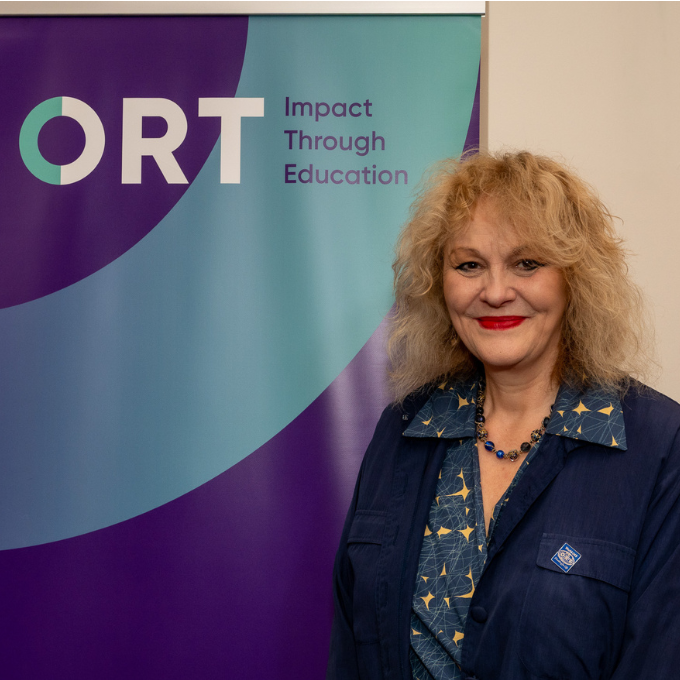

At a moving Kristallnacht commemoration, World ORT shared stories of the organization’s training programs that provided a lifeline for Jewish refugees during and after the Second World War.
At the Association of Jewish Refugees’ (AJR) annual Kristallnacht Commemoration service in London, Jennifer Brunton, World ORT’s Archivist and Records Manager, spoke about the ORT vocational courses that helped Jews survive during the Holocaust.
Jennifer said: “During and after the First World War, ORT saved thousands from starvation and unemployment. With the rise of Nazism in Germany, Jewish communities were thrown into turmoil.
“ORT supported Jewish physicians, lawyers and clerks, all of whom were unemployed because of restrictive laws. ORT became known as a ‘Passport to Life’ as its trainees in ghettos received extra food rations and were selected for labour. In many cases, this meant the difference between life and death.

“There are many other examples of ORT’s work during this period. It was present in the Kovno and Vilna Ghettos; there were trade schools in Romania, despite the harsh wartime conditions, lack of funds, increasing anti-Jewish legislation and pogroms. ORT worked in France, and it soon became a nucleus for German Jews. Further afield, ORT’s work in Shanghai began in 1941, when Jewish refugees arrived from Europe.
“We are proud to have responded to the catastrophe of Kristallnacht and of Nazi oppression in general. We saved lives and empowered people, setting students on a path to a new life, just as ORT has done since 1880, and as it still does today.”
Speaking alongside Jennifer was Monica Lowenberg, daughter of Ernst Lowenberg, one of the 106 boys who was trained at the ORT school in Berlin before escaping Nazi Germany in August 1939.

[Credit: AJR_Adam Soller Photography]
She said: “If there is one word that I would use to sum up my father, it would be kindness. He knew that kindness multiplies itself a thousand times and that all things can be survived with it. His first teacher in that respect was ORT.”
Opening the service, Michael Newman OBE, Chief Executive of the AJR, said: “Each year we gather not only to mourn those who were lost, but to honour the courage of those who survived and rebuilt. Kristallnacht reminds us how quickly hatred can escalate when prejudice goes unchallenged.”

The event marked 87 years since the November 1938 pogroms that heralded one of the darkest chapters in Jewish history and was the catalyst for mass emigration of Jews from Germany and Austria.